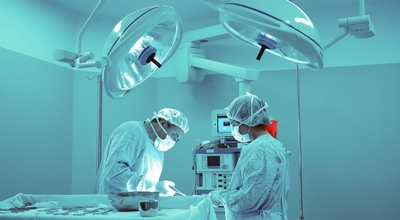Skin Cancer Surgery Risks and Safety Information
Skin cancer diagnoses can involve several treatment options, including radiation therapy, chemotherapy, immunotherapy, and surgery. Upon consultation with your doctor, you will mutually agree on a course of action for your situation. If you decide on surgery, your surgeon will thoroughly explain the procedure and its effect on your physical appearance and overall health.
What is Skin Cancer Surgery?
Skin cancer surgery is one way to remove cancerous growths (tumors) from the skin. A highly qualified dermatologist can remove cancerous lesions utilizing specialized methods, to maintain your general health and appearance, as much as possible. All skin cancer surgeries result in a certain amount of scarring and changes to your appearance. However, a concerted effort will be made to keep this to a minimum, if feasible. In some cases, multiply reconstructive surgeries may be necessary to obtain the best results.
What Can I Expect at my Consultation Appointment?
When you attend your initial consultation with your skin cancer specialist, it is important to be completely truthful about your expectations and concerns about your surgery. Your safety and success of the surgery depend on it. You’ll be expected to answer questions regarding your health, lifestyle, and expected results. Anticipate discussion of the following:
- Your skin cancer type
- Any previous medical treatments, health conditions, and any drug allergies
- Any medications and supplements you take, as well as alcohol and tobacco use.
- Prior surgical procedures
- Probable outcomes of treatment plus possible risks and complications.
Your dermatologist may:
- Discuss with you and recommend other treatment options
- Perform a preliminary skin examination
- Take baseline pictures for your files
What are the Risks of Skin Cancer Surgery?
Prior to your procedure, consent forms need to be signed to make sure you completely understand the procedure, alternatives, potential risks, and complications. Some of the risks include:
- Excessive bleeding
- Infections of incisions and grafts.
- Improper healing of incisions
- Anesthesia administration risks
- Excessive scarring
- Inaccuracy of frozen section results
- Return of skin cancer
- Spreading of skin cancer
- Changes in sensations of the skin
- Irregularities of skin contours
- Discoloration and/or swelling
- Allergic reactions to surgical tape, suture materials, glues, blood products, skin preparations or injectables
- Deep structure damage, either permanent or temporary, to nerves, blood vessels, muscles and lungs
- Persistent or transitory pain
- Possibility of follow-up procedures
- Necessity of further surgery if skin grafts do not “take” the first time
Are There Any Safety Measures I Can Take?
Postoperatively, it is critical that you follow instructions to have a successful outcome. You will be given very specific care instructions. Ensure that your incisions are not subjected to excessive force, motion or abrasion while healing. You are now at a heightened risk for skin cancers compared to other people or this episode could return. Discuss signs, symptoms and prevention of skin cancer with your doctor. Perform regular skin exams. Go for professional skin cancer screenings every six months to a year.
What Can I Expect During Recovery?
- Your incision lines could be painful, sore, reddish in color, and/or drain a bit of liquid.
- Carefully follow your post-op care instructions (i.e. proper cleaning/applying topical applications) as directed.
- Resumption of light activities on the day of the procedure may be allowed.
- Keep your incisions clean and protected from any injuries.
- Attempt to restrict any movement causing undue stress to wound and/or sutures.
- Ask your surgeon specific questions concerning expectations while recovering.
- What medications will be administered/ordered postoperatively?
- Will my incision be covered up afterwards? If so, for how long?
- Are my stitches dissolvable or will they have to be removed later?
- How long before normal activities and exercise can be resumed?
- When is my follow-up appointment?
Summary
Full recovery may take many weeks or months as your incision continues healing. It could take at least a year for incision lines to start fading. Secondary surgeries may be needed to complete reconstruction. For the rest of your life, you need to practice careful sun protection. Sun exposure on healing incisions could cause scars to color unevenly, redden, darken or elevate. Your skin cancer could return or another could develop if extra care in the sun is not taken.

